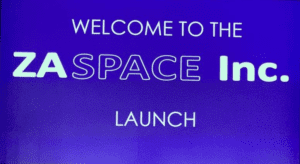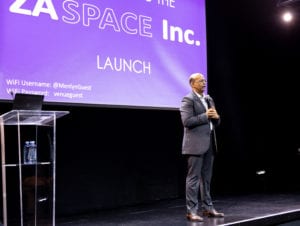
When we think of space, we generally think of SciFi shows such as Star Trek, or humanity’s current plans to send manned missions to Mars. Most people don’t think about space as a business enabler, and yet that is exactly what it has become over the years.
The convergence of earth observation, space navigation and positioning, telecommunications and location intelligence is generating massive opportunities for companies in every sector. Observing the Earth, location and geospatial intelligence have rapidly gravitated to the core of digitisation and innovation.
In fact, the geospatial intelligence domain across the world is set to grow exponentially as more and more business data is integrated with location information across enterprise level functions. This rapid rate of growth can be accredited to the continuous technology advancements in the industry, the democratisation of geospatial information and integration with advancing digital technologies resulting in innovative business models such as Uber.
Similarly, the GIS and Spatial Analytics market is expanding as it finds growing adoption in city planning, utilities management, e-governance, applications, the retail and logistic sector, disaster management and various other applications. The African market for geospatial intelligence is alone estimated to be close to $12-billion by the end of 2020… a massive rate of growth relative to any emerging technology.
However, our space sector remains highly fragmented, massively under-transformed and sub-optimally skilled and capacitated. Our levels of country readiness to truly benefit from these unprecedented growth rates need to be accelerated. The industry fabric required to facilitate structured investment in geospatial skills development as well as funding and incubation of geospatial innovation are not mature.
That is all set to change with the launch of ZASpace Inc. Driven by key industry stakeholders with support from the South African National Space Agency (SANSA), ZASpace is a broad-based industry forum that has been designed to demystify space for business while developing skills and funding innovation to propel the growth of the sector across the continent – across the space value chain from upstream to end users.

“We have had decades of missed opportunity, where we have outsourced and offshored our technology needs. This has proved that it’s a fallacy to assume that the growth and transformation of the geospatial sector will be a natural consequence of increased demand for products and services. We require a deliberate strategy and committed execution to stitch together the vibrant industry fabric needed to capitalise on the promised growth – failing which, we will continue to export our demand to the many overseas firms with spare capacity and diminishing marketing growth rates,” says Kamal Ramsingh, CEO of ZASpace.
“This is why we felt that the formation of ZASpace was essential, and why the time to put South Africa’s geospatial sector on the map is now. We believe that ZASpace will not only provide a valuable tool to propel the growth of the sector across the continent, but will enable innovation, allowing us all to benefit from the opportunities that digital transformation and the 4th industrial revolution offer organisations at every level of our society.”
The first of its kind in Africa – and one of very few such initiatives around the world, ZASpace will prioritise innovation-based funding for SMMEs and start-ups by creating opportunities for participation by private equity, venture capital and other funding institutions. Providing effective co-ordination and marketing of the local industry, ZASpace will provide a platform for both upstream and downstream industry players to co-operate and engage in the growth of the sector.

“ZASpace is of strategic importance to the future trajectory of the South African space sector. For the next five-year planning cycle, commencing 2020, South Africa will be charting a new strategic direction for our national space programme and ZASpace Inc. will be a critical partner in forging stronger public-private sector partnerships. SANSA is looking forward to working closely with the newly formed forum,” says Dr Valanathan Munsami, CEO of SANSA.
He adds that the value of ZASpace was immediately apparent to stakeholders. Siyabonga Copiso, CEO of Amaya Space, which aims to launch South Africa’s first constellation of nano-satellites, pledged the use of the constellation to ZASpace at the launch event, and the Department of Trade and Industry also offered its backing at the event, offering to sit on the foundational ZASpace Working Committee.
The other members of the Working Committee include Charmaine Houvet from Cisco, Davis Cook from RIIS, Imraan Saloojee from SANSA, Pieter Coetzee from SelfTrack, Rebatho Madiba from Transnet, Robert van Zyl from Amaya Space, Seshan Krishnamurti from Dimension Data, Sives Govender from EIS Africa, Thuli Khanyile from NkaThuto Edupropeller, and Kamal Ramsingh from GeoInt. Introducing the Committee during the launch, Andiswa Mlisa from SANSA praised the ecosystem view taken by ZASpace, bringing together the full value chain from satellite development to end-user businesses.
“A well-organised and co-ordinated geospatial sector will promote South African – and African – capabilities internationally. ZASpace’s focus on skills development, innovation and funding will provide the foundation for a vibrant sector – to both rival and partner the best in the world,” Ramsingh concludes.





